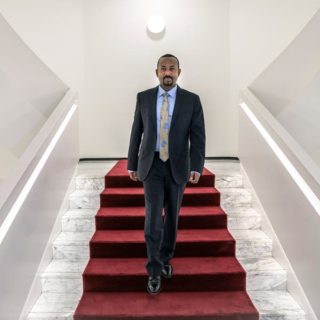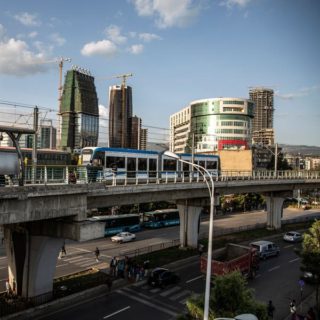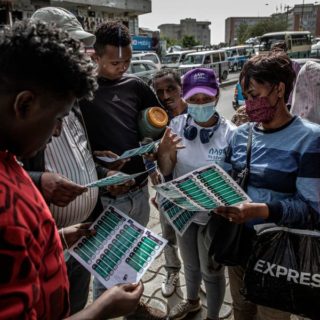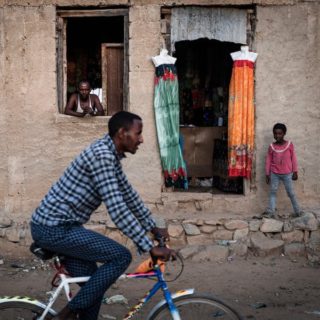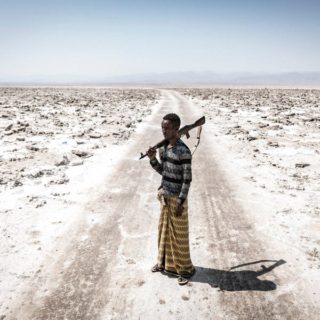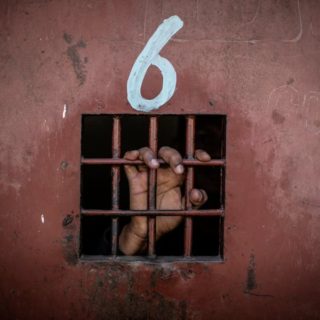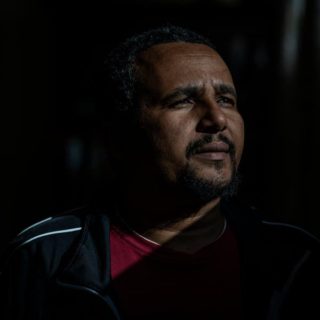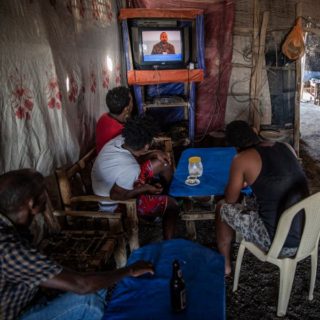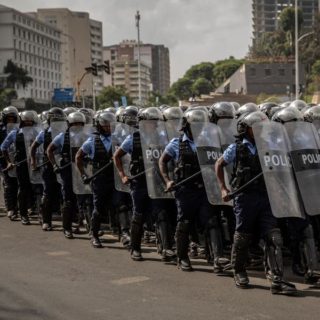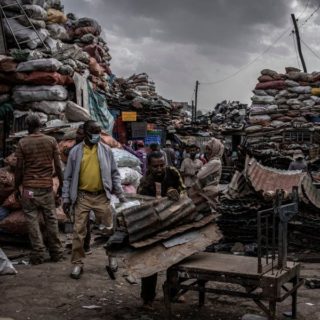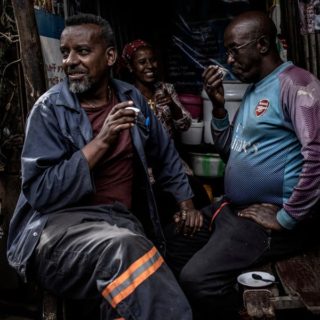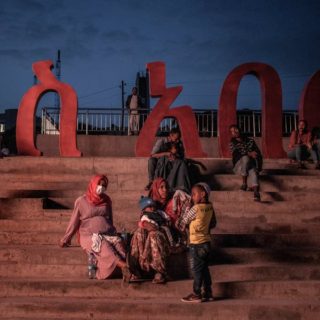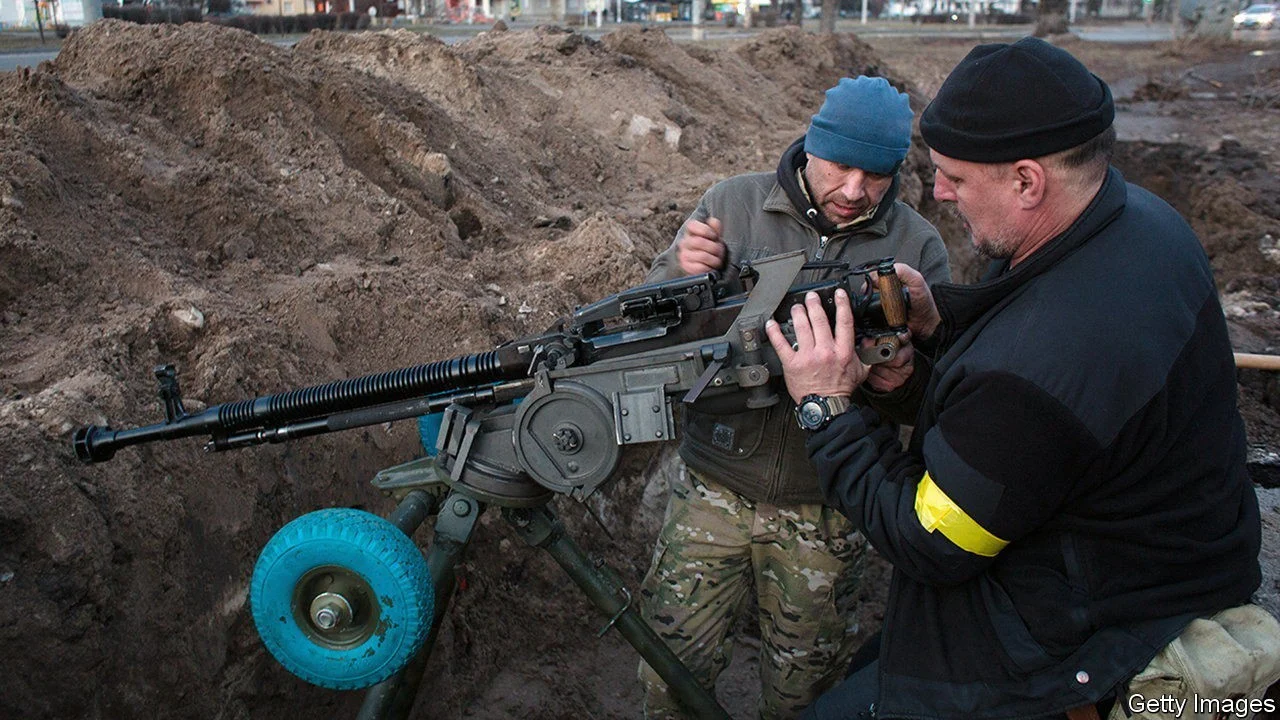ADDIS ABABA, Ethiopia — As war raged in northern Ethiopia, and the region barreled toward its worst famine in decades, a senior American envoy flew to the Ethiopian capital last month in the hope of persuading Prime Minister Abiy Ahmed to pull his country out of a destructive spiral that many fear is tearing it apart.
Mr. Abiy, though, wanted to go for a drive.
Taking the wheel, the Ethiopian leader took his American guest, the Biden administration’s Horn of Africa envoy, Jeffrey D. Feltman, on an impromptu four-hour tour of Addis Ababa, American officials said. The prime minister drove him past smart new city parks and a refurbished central plaza and even crashed a wedding where the two men posed for photos with the bride and groom.
Mr. Abiy’s attempt to change the channel, showcasing economic progress while parts of his country burned, was just the latest sign of a troubled trajectory that has baffled international observers who wonder how they got him so wrong.
Not long ago Mr. Abiy, who faces Ethiopian voters on Monday in long-delayed parliamentary elections, was a shining hope for country and continent. After coming to power in 2018 he embarked on a whirlwind of ambitious reforms: freeing political prisoners, welcoming exiles home from abroad and, most impressively, striking a landmark peace deal with Eritrea, Ethiopia’s old foe, in a matter of months.

A light rail and rapid transit train, the first in sub-Saharan Africa, traveling past skyscrapers under construction in Addis Ababa in 2019. Mr. Abiy is pushing his vision of a modernized, economically vibrant Ethiopia. Finbarr O’Reilly for The New York Times

A worker with the National Electoral Board of Ethiopia explaining ballots last week in Addis Ababa before Monday’s general election. Finbarr O’Reilly for The New York Times
The West, eager for a glittering success story in Africa, was wowed, and within 18 months Mr. Abiy, a one-time intelligence officer, had been awarded the Nobel Peace Prize.
But in just nine months Mr. Abiy’s halo has been brutally shattered. The civil war that erupted in the northern region of Tigray in November has become a byword for atrocities against Ethiopian citizens.
Mr. Abiy’s forces have been accused of massacres, sexual assault and ethnic cleansing. Last week a senior United Nations official declared that Tigray was in the throes of a famine — the world’s worst since 250,000 people died in Somalia a decade ago, he said.
Elsewhere in Ethiopia, ethnic violence has killed hundreds and forced two million people to flee their homes. A smoldering border dispute with Sudan has flared into a major military standoff.
Even the election on Monday, once billed as the country’s first free vote and a chance to turn the page on decades of autocratic rule, has only highlighted its divisions and fueled grim warnings that Ethiopia’s very future is in doubt.
“These elections are a distraction,” said Abadir M. Ibrahim, an adjunct law professor at Addis Ababa University. “The state is on a cliff edge, and it’s not clear if it can pull back. We just need to get past this vote so we can focus on averting a calamity.”
The prime minister’s office did not respond to questions and an interview request.

An October 2019 street scene in Badme, the disputed town over which the border war between Ethiopia and Eritrea was fought from 1998 to 2000. Finbarr O’Reilly for The New York Times

An Afar militiaman on the salt flats of the Danakil Depression in 2019. In the past month, 400,000 people have been forced from their homes in the Amhara and Afar regions. Finbarr O’Reilly for The New York Times
Mr. Abiy’s Prosperity Party, formed in 2019 from the rump of a former governing coalition, is widely expected to win the election easily. But there will be no voting in 102 of Ethiopia’s 547 constituencies because of war, civil unrest and logistical failures.
Senior opposition leaders are in jail and their parties are boycotting the vote in Oromia, a sprawling region of about 40 million people that is more populous than many African countries.
Mr. Abiy has put a brave face on his nation’s problems, repeatedly downplaying the Tigray conflict as a “law and order operation” and pushing his vision for a modernized, economically vibrant Ethiopia. The United States, which gave Ethiopia $1 billion in aid last year, is pressuring him to shift focus immediately.
After being chauffeured around Addis Ababa by Mr. Abiy in May, Mr. Feltman wrote a detailed analysis of his trip for President Biden and other leaders in Washington, even mentioning a sudden jolt by the vehicle that sent coffee spilling on the envoy’s shirt.
Weeks later, Secretary of State Antony J. Blinken imposed visa bans on unnamed Ethiopian officials.
Other foreigners have left Ethiopia concerned that ethnic cleansing was underway. Pekka Haavisto, a European Union envoy who visited in February, told the European Parliament last week that Ethiopian leaders had told him “they are going to destroy the Tigrayans, that they are going to wipe out the Tigrayans for 100 years.”
Ethiopia’s foreign ministry dismissed Mr. Haavisto’s comments as “ludicrous” and a “hallucination of sorts.”
Global condemnation of Mr. Abiy, 44, most recently at last week’s Group of 7 summit, represents a dizzying fall for a young leader who until recently was globally celebrated.
The whirl of reforms he instituted after being appointed prime minister in 2018 were a sharp rebuke to the Tigray People’s Liberation Front, a party of rebels turned rulers who had dominated Ethiopia since 1991 in an authoritarian system that achieved impressive economic growth at the cost of basic civil rights.

After coming to power in 2018, Mr. Abiy freed political prisoners and welcomed exiles home. Finbarr O’Reilly for The New York Times

Jawar Mohammed, a media baron, is one of Ethiopia’s most prominent opposition figures. Finbarr O’Reilly for The New York Times
Mr. Abiy promised a new way. He allowed once-banned opposition parties, appointed women to half the positions in his cabinet and struck the peace with Eritrea that earned him a Nobel Prize.
But in moving swiftly, Mr. Abiy also unleashed pent-up frustrations among ethnic groups that had been marginalized from power for decades — most notably his own group, the Oromo, who account for one-third of Ethiopia’s 110 million people. When mass protests erupted, he reverted to the old playbook: arrests, repression and police brutality.
At the same time, tensions escalated with the T.P.L.F., which resented Mr. Abiy’s swaggering reforms. The party leadership retreated to Tigray where, last September, it defied Mr. Abiy by proceeding with regional elections that had been postponed across the country because of the pandemic.
By early last November, word reached Washington that war was looming in Tigray. Senator Chris Coons, who has a longstanding interest in Africa, phoned Mr. Abiy to warn about the perils of resorting to military force.
Mr. Coons, a Democrat from Delaware, said he reminded the Ethiopian leader that the American Civil War and World War I had started with promises of swift military victory, only to drag on for years and cost millions of lives.
Mr. Abiy was undeterred. “He was confident it would be over in six weeks,” Mr. Coons said. Days later, on the evening of the American presidential election, fighting erupted in Tigray.
Mr. Abiy has given few interviews. But people who have dealt with him describe a man brimming with self-confidence, even “messianic” — a description encouraged by Mr. Abiy’s own accounts that his ascent to power was preordained. When he was 7, Mr. Abiy told The New York Times in 2018, his mother whispered into his ear that he was “unique” and predicted that he would “end up in the palace.”

Watching a television newscast showing Mr. Abiy shortly after he won the Nobel Peace Prize, at a roadside restaurant in the northern Afar region in 2019. Finbarr O’Reilly for The New York Times

Riot police officers, in a show of force, marching Saturday in a parade in Addis Ababa. Finbarr O’Reilly for The New York Times
A former adviser said that a strong Christian faith also guides Mr. Abiy. He is a Pentecostal Christian, a faith that has soared in popularity in Ethiopia, and is a staunch believer in the “prosperity gospel” — a theology that regards material success as God’s reward — said the former adviser, who spoke on the condition of anonymity to avoid reprisals. It is not a coincidence, the adviser added, that the party founded by Mr. Abiy in 2019 is called the Prosperity Party.
Mr. Abiy’s evangelical faith has attracted influential supporters in Washington, including Senator James M. Inhofe, Republican of Oklahoma, who told the Senate in 2018 how he first met Mr. Abiy at a prayer meeting where “he told the story of his journey and faith in Jesus.”
Last month, Mr. Inhofe traveled to Ethiopia to show his support for Mr. Abiy against the American sanctions.
Another crucial relationship for Mr. Abiy is with the dictatorial leader of Eritrea, Isaias Afwerki. Eritrean troops who flooded into Tigray to support Mr. Abiy’s campaign have been accused by the United Nations and rights groups of the worst atrocities of the conflict. Now they are a major factor in the region’s famine.
Eritrean soldiers “using starvation as a weapon of war” are blocking aid shipments headed for the most vulnerable parts of Tigray, Mark Lowcock, the top U.N. humanitarian official, told the Security Council last week.
The Eritrean issue is Mr. Abiy’s largest international liability, and some analysts describe him as being manipulated by Mr. Isaias, a veteran fighter with a reputation for ruthless strategic maneuvering. By other accounts, Mr. Abiy has little choice — were the Eritreans to leave suddenly, he could lose control of Tigray entirely.
The election is likely to highlight the mounting challenges in the rest of Ethiopia. In the past month alone, 400,000 people have been forced from their homes in the Amhara and Afar regions, Mr. Lowcock said. The military has taken control in several parts of Oromia, where an armed rebellion has erupted.

Weighing sheet metal at a recycling depot in Addis Ababa. Ethiopia is grappling with daunting economic and social challenges. Finbarr O’Reilly for The New York Times

Downtime at a coffee kiosk in a market in Addis Ababa. Washington said last month that it was cutting security and economic assistance to Ethiopia. Finbarr O’Reilly for The New York Times
Mr. Coons, sent by Mr. Biden to reason with Mr. Abiy in February, warned the Ethiopian leader that the explosion of ethnic hatred could shatter the country, much as it did the former Yugoslavia during the 1990s.
Mr. Abiy responded that Ethiopia is “a great nation with a great history,” Mr. Coons said.
Mr. Abiy’s transformation from Nobel Peace Prize laureate to wartime leader has prompted quiet soul-searching among some of his allies. The glitter of the Nobel Prize, and a burning desire for a success story in Africa, blinded many Western countries to his evident faults, said Judd Devermont, a former U.S. national intelligence officer for Africa, now at the Center for Strategic and International Studies.
With limited interest in Africa, the West too readily categorizes the continent’s leaders as “good” or “bad” with little room for nuance, he added.
“We have to acknowledge that we helped to contribute to Abiy’s view of himself,” he said. “We papered over these challenges very early. We gave him a blank check. When it went wrong, we initially turned a blind eye. And now it may be too late.”

An urban park where letters spell “Addis Ababa” in Amharic. Finbarr O’Reilly for The New York Times
FEATURED IMAGE: Ethiopia’s election campaign has highlighted divisions that have only grown since Prime Minister Abiy Ahmed took office. Finbarr O’Reilly for The New York Times
Declan Walsh’s news report was first published in The New York Times on June 21, 2021, and was updated on June 23, 2021.

